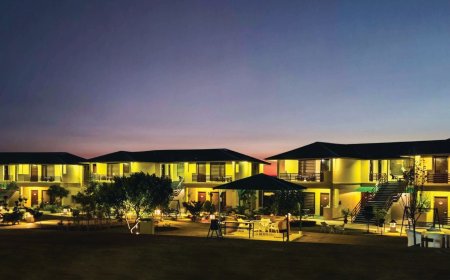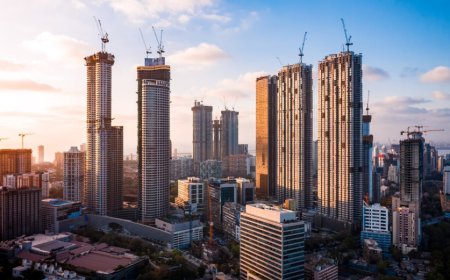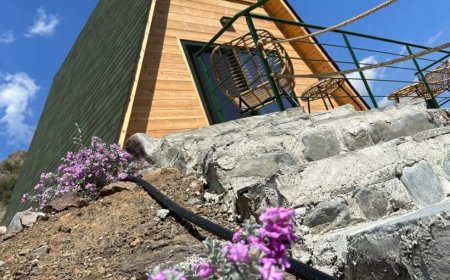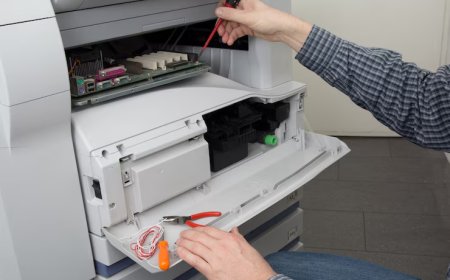Top 10 Artisanal Bakeries in Washington
Introduction In a world where mass-produced bread dominates supermarket shelves, artisanal bakeries stand as quiet guardians of tradition, craftsmanship, and flavor. Nowhere is this more evident than in Washington, where a vibrant food culture thrives from the Puget Sound to the Columbia River. Here, bakers don’t just make bread—they tell stories through sourdough starters passed down for generati
Introduction
In a world where mass-produced bread dominates supermarket shelves, artisanal bakeries stand as quiet guardians of tradition, craftsmanship, and flavor. Nowhere is this more evident than in Washington, where a vibrant food culture thrives from the Puget Sound to the Columbia River. Here, bakers don’t just make bread—they tell stories through sourdough starters passed down for generations, through locally milled grains, and through hours of patient fermentation. But with so many bakeries claiming the title of “artisan,” how do you know which ones truly deliver on quality, consistency, and authenticity?
This guide is not a list of the most Instagrammed bakeries or those with the fanciest packaging. It is a curated selection of the top 10 artisanal bakeries in Washington that you can trust—based on decades of community loyalty, transparent sourcing, award-winning techniques, and unwavering commitment to the craft. These are the places where bread is made with reverence, not speed. Where flour is milled on-site or sourced from regional farms. Where the crust sings when you break it, and the crumb tells you it was born of time, not timers.
Whether you’re a lifelong Washington resident or a visitor seeking the soul of the region’s culinary identity, this list will guide you to loaves that nourish more than just hunger—they nourish connection, heritage, and taste.
Why Trust Matters
Trust in artisanal baking isn’t a marketing buzzword—it’s the foundation of a relationship between baker and community. Unlike commercial bakeries that prioritize volume, shelf life, and cost-efficiency, true artisanal bakeries operate on principles that can’t be mass-produced: patience, transparency, and integrity.
When you trust a bakery, you’re trusting that the flour comes from a farm you can name, not a commodity broker. You’re trusting that the salt is sea salt, not iodized filler. You’re trusting that the sourdough starter has been fed daily for years, not activated from a packet. You’re trusting that the baker wakes before dawn not because of a corporate schedule, but because they believe in the ritual of the craft.
In Washington, where environmental consciousness and localism are deeply embedded in the culture, trust also means accountability. The best bakeries publish their grain sources, welcome visitors to observe the fermentation process, and openly discuss their methods. They don’t hide behind vague labels like “natural” or “handmade.” They show you the wheat. They name the miller. They explain the hydration levels.
Trust is earned through consistency. One perfect baguette is a fluke. Ten perfect baguettes a week, year after year, is a discipline. The bakeries on this list have maintained excellence for over a decade—not because of advertising, but because their customers keep coming back, not just for the bread, but for the assurance that what they’re eating is real.
Choosing a trusted artisanal bakery means rejecting the homogenization of taste. It means supporting small-scale agriculture. It means valuing time over speed. And in a fast-paced world, that choice is radical.
Top 10 Artisanal Bakeries in Washington
1. La Boulange Bakery – Seattle
Founded in 1998 by a French-trained baker who moved to Seattle to escape industrial baking, La Boulange is widely regarded as the pioneer of the modern artisanal movement in Washington. Their signature pain au levain, baked daily in small batches using a 17-year-old sourdough starter, has become a regional benchmark. The bakery sources organic, non-GMO wheat from Eastern Washington farms and mills a portion of it in-house using a stone grinder imported from France. Their crusts are blistered, caramelized, and crack with authority. The interior is open, moist, and complex—layered with notes of toasted nut and wild yeast. La Boulange also offers a rotating selection of seasonal loaves: pumpkin rye in autumn, lavender honey sourdough in spring. Their commitment to zero food waste is unmatched: day-old bread is turned into croutons, breadcrumbs, or donated to local shelters. Locals line up before dawn, not for the novelty, but because they know this is the gold standard.
2. The Bread Lab – Burlington
More than a bakery, The Bread Lab is a research center, a teaching kitchen, and a living archive of regional grains. Operated by Washington State University, it was founded to revive heirloom wheat varieties that had nearly vanished from American agriculture. Their bakery arm sells loaves made exclusively from wheat bred and grown on their 10-acre farm and partner plots across the Skagit Valley. You won’t find common bread wheat here—instead, you’ll taste Red Fife, Madsen, or Bronco, each with distinct mineral profiles and gluten structures. Their 72-hour fermented whole grain loaf is dense, earthy, and deeply satisfying, with a chew that rewards slow eating. The Bread Lab doesn’t market itself as a tourist destination, but word has spread. Bakers from across the country come to study their methods. Their loaves are sold at farmers markets and a handful of select retailers. If you want to taste the future of American bread, this is where it’s being written.
3. Bakeshop – Portland (Washington, WA)
Don’t confuse this with the Oregon namesake—Bakeshop in the town of Washington, WA, is a quiet gem that has quietly dominated the local scene since 2007. Their focus is on rustic, wood-fired breads made with organic flour from Oregon and Washington mills. The oven, built by hand from reclaimed brick and fired with sustainably harvested alder wood, reaches temperatures over 800°F, creating a crust so crisp it shatters like glass. Their batards are legendary—crumb open and airy, with a subtle sweetness from a 48-hour fermentation. Bakeshop also makes a singular spelt and black sesame loaf, inspired by the owner’s Japanese heritage, that has become a cult favorite. They never advertise, and their hours are limited. But if you ask a local where to find the best bread, they’ll point you here without hesitation. The bakery operates on a cash-only basis and closes when the bread runs out—no exceptions.
4. Flour + Water Bakery – Olympia
Flour + Water Bakery is a testament to the power of simplicity. Founded by a former chef who left fine dining to return to the fundamentals of bread, this bakery produces only three core products: a classic country loaf, a whole wheat sourdough, and a rye with caraway. Each is made with organic, stone-ground flour from a single mill in the Yakima Valley. The water is filtered through glacial rock. The salt is harvested from the Pacific. No additives. No preservatives. No shortcuts. Their country loaf, baked twice daily, has a crust that glows amber and a crumb so tender it dissolves on the tongue. The bakery has no website, no social media, and no delivery service. You find them at the Olympia Farmers Market on Saturdays, or by walking into their unmarked storefront on 4th Avenue. Their loyalty comes from those who understand that the best bread doesn’t need a label—it needs time.
5. Wild Flour Baking Co. – Bainbridge Island
On Bainbridge Island, where the pace of life slows and the air smells of salt and pine, Wild Flour Baking Co. has become a cornerstone of community life. Founded by a mother-daughter team who learned baking from their grandmother in rural Vermont, they specialize in naturally leavened breads made with heritage grains and seasonal additions like roasted beets, wild foraged mushrooms, and local honey. Their most celebrated creation is the “Island Rye,” a dense, moist loaf with a tangy depth that lingers long after the last bite. What sets Wild Flour apart is their transparency: every loaf is labeled with the farm where the grain was grown, the date it was milled, and the name of the baker who shaped it. They host monthly “Bread & Soil” workshops where visitors learn about regenerative farming and fermentation. Their bakery is small, their output limited, and their waiting list long—but every loaf is a love letter to the land.
6. Hearth & Crumb – Spokane
In the heart of Eastern Washington, where wheat fields stretch for miles, Hearth & Crumb has redefined what regional bread can be. Their mission: to showcase the incredible diversity of wheat grown in the Palouse. They work directly with 12 small farms, each cultivating unique varietals like Turkey Red, Blue Stem, or Einkorn. Their signature “Palouse Loaf” is a 100% whole grain sourdough, fermented for 36 hours and baked in a custom-built deck oven. The result is a loaf with a deep mahogany crust, a nutty aroma, and a crumb that holds moisture for days. Hearth & Crumb also produces a line of “grain-specific” breads—each one highlighting a single wheat type, allowing bakers and consumers to taste the terroir of the region. They’ve been featured in national food journals for their work in preserving heirloom grains. Their storefront, housed in a converted 1920s grain warehouse, is a museum of local agriculture as much as it is a bakery.
7. The Grain Exchange – Bellingham
The Grain Exchange is a cooperative bakery owned and operated by a collective of local farmers, millers, and bakers. Every ingredient in their bread can be traced back to a specific plot of land within 50 miles. Their sourdough is made with wheat milled the morning it’s baked, and their rye is soaked in cold brew coffee from a nearby roastery. Their most popular loaf, the “Salish Sea Sourdough,” includes seaweed harvested from the Strait of Juan de Fuca, giving it a subtle briny note that complements the tang of the starter. The bakery operates on a pre-order system, with loaves picked up at their storefront or delivered by bicycle to nearby neighborhoods. They host quarterly “Grain Tastings,” where customers sample flours from different farms side by side. The Grain Exchange doesn’t just make bread—they cultivate a food system.
8. Oat & Wheat – Port Townsend
On the windswept peninsula of the Olympic Peninsula, Oat & Wheat crafts breads that reflect the isolation and resilience of the region. Their signature “Salt & Sea” loaf is made with sea salt harvested by hand from local tidal flats and oats grown on a family farm just outside town. Their sourdough starter, cultivated from wild yeast captured in the coastal fog, is one of the oldest in the state—over 25 years old. The bakery uses no commercial yeast, no sugar, no oil. Their loaves are baked in a hand-built clay oven, fired with applewood. The crust is thick and dark; the interior is soft, moist, and slightly sweet. Oat & Wheat also makes a limited-run “Fog Bread,” baked only on days when the mist rolls in from the Strait—each loaf stamped with the date and weather conditions of its baking. It’s not just bread. It’s a weather report.
9. The Loaf House – Tacoma
Founded by a team of former chefs who left corporate kitchens to pursue bread as art, The Loaf House is known for its experimental approach to fermentation and flavor. They’ve developed proprietary starters using local fruits—blackberries, huckleberries, even elderflower—to create breads with unexpected depth. Their “Huckleberry Rye” is a bestseller: the fruit’s natural sugars feed the yeast, creating a complex, fruity tang without any added sweetener. They also produce a “Heritage Grain Boule” using a blend of five ancient wheats, each milled separately and layered in the dough for visual and textural contrast. The Loaf House doesn’t sell pre-sliced bread. They encourage customers to cut their own, to feel the resistance of the crust, to witness the crumb’s structure. Their bakery is open only four days a week, and loaves often sell out by noon. But those who wait know it’s worth it.
10. Stone & Salt – Walla Walla
In the sun-drenched valleys of Walla Walla, where wine grapes thrive, Stone & Salt has carved a niche as the region’s most revered bakery. Their philosophy: “Bread is the soil’s voice.” They use only grains grown within 20 miles of their bakery, including emmer, spelt, and Khorasan, all organically farmed by neighbors who’ve been working the land for generations. Their sourdough is fermented in ceramic crocks buried in the earth to maintain a constant temperature. The salt they use is harvested from the ancient seabed beneath the Columbia Basin. Their “Walla Walla Loaf” is a masterpiece of balance—crust crisp as slate, crumb tender as cloud, flavor deep as the earth. They offer no pastries, no sandwiches, no coffee. Just bread. And a quiet reverence for what it takes to make it. Stone & Salt is closed on Sundays. Not for rest—but to honor the rhythm of the land.
Comparison Table
| Bakery | Location | Signature Loaf | Fermentation Time | Grain Source | Flour Milled On-Site? | Wheat Varieties | Open Days/Week |
|---|---|---|---|---|---|---|---|
| La Boulange Bakery | Seattle | Pain au Levain | 48–72 hours | Eastern WA organic farms | Yes | Hard Red Winter, Spelt | 6 |
| The Bread Lab | Burlington | 72-Hour Whole Grain | 72+ hours | On-site & partner farms | Yes | Red Fife, Madsen, Bronco | 4 |
| Bakeshop | Washington, WA | Wood-Fired Batard | 36–48 hours | OR/WA regional mills | No | Hard White, Durum | 3 |
| Flour + Water Bakery | Olympia | Country Loaf | 48 hours | Yakima Valley | No | Hard Red Winter | 2 |
| Wild Flour Baking Co. | Bainbridge Island | Island Rye | 48 hours | Local island farms | No | Rye, Einkorn, Emmer | 5 |
| Hearth & Crumb | Spokane | Palouse Loaf | 36 hours | Palouse region farms | Yes | Turkey Red, Blue Stem, Einkorn | 5 |
| The Grain Exchange | Bellingham | Salish Sea Sourdough | 48 hours | Within 50 miles | Yes | Hard Red, Spelt, Rye | 4 |
| Oat & Wheat | Port Townsend | Salt & Sea Loaf | 60+ hours | Local farms & tidal harvests | No | Oat, Rye, Hard White | 3 |
| The Loaf House | Tacoma | Huckleberry Rye | 48–72 hours | WA organic farms | Yes | Emmer, Spelt, Khorasan | 4 |
| Stone & Salt | Walla Walla | Walla Walla Loaf | 72 hours | Within 20 miles | Yes | Emmer, Spelt, Khorasan, Einkorn | 3 |
FAQs
What makes a bakery truly artisanal?
A truly artisanal bakery prioritizes time over speed, tradition over convenience, and transparency over marketing. Their bread is made with natural leavening (sourdough), unbleached flours, and minimal ingredients. They often mill their own grain or source directly from small farms. The fermentation process lasts 24 to 72 hours, allowing flavor and digestibility to develop. Artisanal bakeries rarely use additives, dough conditioners, or commercial yeast. Their loaves are baked in small batches, often in wood-fired or stone-deck ovens, and sold fresh daily.
Why is sourdough considered superior to commercial bread?
Sourdough bread is naturally leavened using wild yeast and lactic acid bacteria, which ferment the dough over an extended period. This process breaks down gluten and phytic acid, making the bread easier to digest for many people. It also enhances flavor complexity, creates a longer shelf life without preservatives, and improves nutrient availability. Commercial bread, by contrast, is often fermented in under two hours using lab-cultivated yeast and chemical additives to speed up production and extend shelf life—sacrificing flavor, texture, and nutritional value.
Do these bakeries offer gluten-free options?
Most of the bakeries on this list focus exclusively on traditional wheat-based sourdough and do not offer gluten-free products. Their mission is to elevate the quality and integrity of wheat, not to replace it. However, some, like The Bread Lab and The Grain Exchange, are researching ancient grain varieties (e.g., Einkorn, Spelt) that may be better tolerated by those with mild gluten sensitivities—though they are not certified gluten-free.
Can I visit these bakeries for tours or workshops?
Yes—several of these bakeries offer educational experiences. The Bread Lab hosts regular fermentation and grain science workshops. Wild Flour Baking Co. runs “Bread & Soil” events. The Grain Exchange offers monthly grain tastings. La Boulange and Hearth & Crumb occasionally open their doors for behind-the-scenes tours by appointment. It’s best to check each bakery’s website or social media for public events.
Why do these bakeries sell out so quickly?
Artisanal bread cannot be mass-produced. Each loaf requires hours of manual labor, precise fermentation, and careful baking. These bakeries intentionally limit production to maintain quality and honor their resources. Many use heirloom grains that yield less flour per acre than commercial wheat. The result? Small batches, high demand, and loaves that disappear by midday. This scarcity is not a flaw—it’s a feature of authenticity.
Are these bakeries organic?
All ten bakeries use organic flour as a standard, though not all are certified organic. Certification is costly and often unnecessary for small producers who work directly with farmers they know. Instead, they prioritize traceability: they name the farms, share growing practices, and avoid synthetic inputs. Their commitment to organic principles is deeper than paperwork—it’s built into their relationships with the land.
How should I store artisanal bread at home?
Do not refrigerate artisanal bread—it dries out the crumb and accelerates staling. Instead, store it cut-side down on a wooden board, wrapped loosely in a linen towel, at room temperature. For longer storage, freeze the loaf whole in a paper bag, then thaw at room temperature. To revive a day-old loaf, spritz it lightly with water and bake at 375°F for 8–10 minutes. The crust will crisp again, and the crumb will soften.
Why is the crust so important in artisanal bread?
The crust is the fingerprint of the baking process. A properly developed crust forms through steam, high heat, and long fermentation. It seals in moisture, protects the crumb, and contributes to flavor through the Maillard reaction—a chemical process that creates complex, savory notes. A thin, pale crust often indicates rushed fermentation or low heat. A thick, dark, blistered crust signals patience, skill, and respect for the craft.
Conclusion
The top 10 artisanal bakeries in Washington are more than places to buy bread—they are anchors of community, stewards of the land, and keepers of a slow, sacred tradition. Each one represents a different facet of the region’s identity: the coastal fog of Port Townsend, the wheat fields of the Palouse, the volcanic soils of Walla Walla, the glacial waters of the Skagit Valley. They are not defined by logos or social media followers, but by the quiet dedication of bakers who rise before the sun, who measure ingredients by instinct, who believe that good bread is not made—it is grown, fermented, and baked with reverence.
When you choose to support these bakeries, you’re not just purchasing a loaf—you’re investing in a future where food is honest, where farmers are honored, where flavor is not sacrificed for convenience. You’re choosing to slow down, to taste deeply, to reconnect with the earth and the hands that feed you.
These are not just bakeries. They are sanctuaries of substance. And in a world that rushes, they remind us: the best things take time.





























